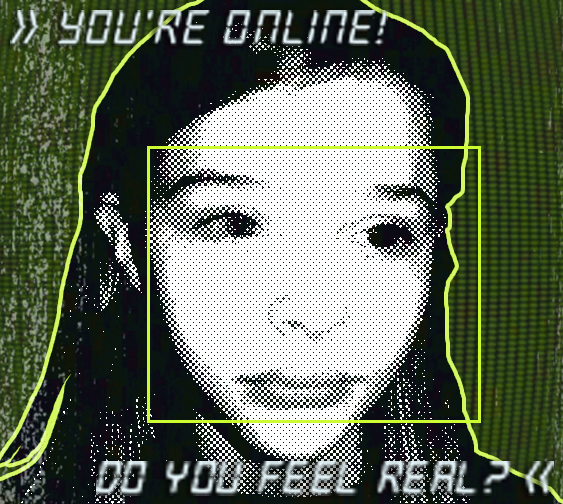Chapter 2: Developed Society and the Objectified Body
The affect of advanced society on the mind-body dualism
The mental health crisis is not just a crisis of mental health, rather it is a consequence of a crisis of embodiment. This becomes clearer when you examine the changes made to the structure of society as time has elapsed. Our growing reliance on emergent technologies have caused a regressive effect on the kinesthetic functions that connect our brains to our bodies. As science continues its crusade of discovering objective reality, the information extracted from the sciences becomes processed to produce replication of natural orders. As we've discovered how electricity works, we've been able to replicate that functionality and apply it for the sake of our own utility. As we've gotten progressively better at systematizing functions of natural reality, we've managed to create widespread convenience for developed society. But as we've increasingly concretized our theories, and applied our novel insights from which, it is becoming increasingly apparent that the vehicle that concretizes our own realities as human beings, that being the human body, becomes more and more ambiguous in relation to our experiences. And what seems to result from this, is possibly a contemporary manifestation of a polarized cartesian dualism.

We're experiencing a transition of values in our society, values of which are directly tethered to the way that experience is metabolized within the experiencer. As the body's relevance becomes more ambiguous to the individual in relation to society, we're witnessing a crisis of mental suffering. As functions of the mind have become the dominating factor in developed society, as medicine begins to replace the effort required of an individual's autonomy over their own health, as physical labor becomes optimally automated, the body's relation to one's identity becomes that much more irrelevant as society's demand for the body's capabilities decreases. As the body's relevancy becomes more ambiguous, the body itself becomes sort of inconvenient; it begins to burden one as a limitation, rather than acting as the vessel of lived experience. This is the fundamental difference between the Leib (being-body), and the Körper (having-body). As developed society continues to differentiate the mind from the body, what seems to result is an objectification of the body. It is no longer a source of being and vitality in which the subjective life is experienced. Rather, it has become a loathsome object that contains us. Our bodies are becoming flesh prisons.
It's only natural that this is where civilization has arrived. Death is an exclusively physical process. It is not the absence of mind that determines whether you are alive or dead. Rather, In order for experience to end it depends on the natural functions of the body that contains the experiencer, to cease its functionalities. It is in our nature as animals to compete in the game of natural selection by protecting our bodies at all costs, so that life and survival of the species may continue forthright. Over the course of history, humans as a species have competed by means of the intellect, and in doing so we have taken our place as the most dominant species in the hierarchy of natural selection. Follow this trend up until now, and you can see that the drive for protection of the body by means of the intellect is still the main factor for our development of technology, which in the modern context has enabled developed societies more than just bodily security. It has enabled bodily comfort and pleasure as well. And yet as time goes on, it becomes more and more clear that this bodily comfort and pleasure has only served to create more issues for the species. In the context of evolution, this is evident in that suicide has become a pervasive issue in developed societies. It is paradoxical in nature. The very biological drivers that motivated our creations, now result in self-termination as a result of those creations. Humanity has been instinctually driven to secure the body, and yet in the result of achieving that outcome, the very instinct that motivates the continuation of existence is no longer being acted upon.
When a function in a computer program successfully executes its process, it does not continue running until that function is called again. How cruel would it be for this program to be conscious? Wouldn't that be cruel? It must remain in purgatory until its creator calls for its functionality again.
People in developed societies feel a lack of purpose because the implicit and instinctual biological drive to obtain security over our physical bodies has already achieved its purpose. So the question then becomes,”What now? Why am I here? What is the point of all this?" These are questions that over time, won’t have any answers in relation to physical space. Unless a more potent form of meaning can be found out side of physical space, suicide will always be an option for the existentially nervous individual. If suicide is not the answer however, then a complete re-evaluation of experience becomes required so that a new purpose can become embodied and acted on. One must "explicate the implicit," a process that inevitably creates ambiguity between Körper and Leib, as the process inherently requires one to question the nature of existence itself. It is a retreat from concrete reality, into the abstractions that rule reality, that consequently alienate the body from the mind and its identities. It is a process that distills reality into its essentials until it arrives at a single remaining point, a singularity, or a unifying principle. It is fundamentally a search for God.
Yet, this search for a subjective God does not within itself bring salvation, rather it manifests as a metaphysical wandering amongst the breadth of your mental impressions. It is a deconstruction and evaluation of the processes that determine your pathology, and only then can a new image be reconstructed out of the rubble of your neurotic hyperreflexive analysis. Developed civilization has found itself in a unique position. It may be that as the inconvenience of the objective world comes closer and closer to that of total convenience, as the physical world becomes "solved," the next immediate adventure that is left for humanity exists in a realm that is purely metaphysical. It could be that a mental health crisis is not really much of a crisis, rather it is a new kind of suffering, and a new kind of resistance for humanity to contend with. It is simply a function of our collective awareness of what lies within the mind that is made possible by the making of a comfortable physical world. The unfolding of the unconscious and its transcendence into the conscious, would seem to be the next step in human evolution.


